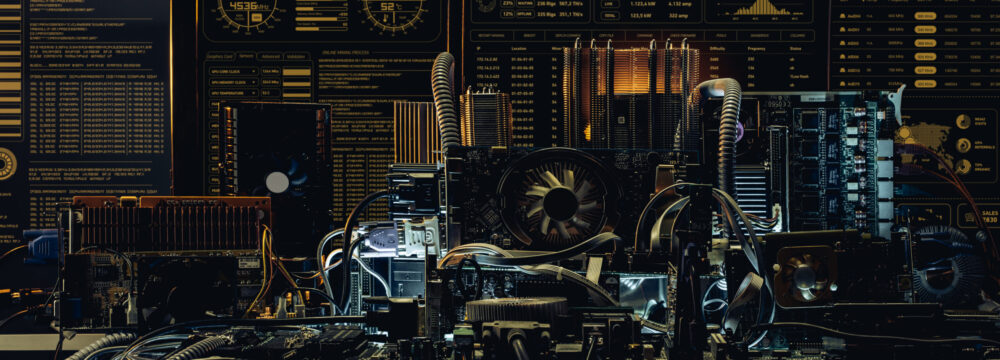
How Bitcoin’s Decentralized Network Protects Bitcoin Miners From Centralized Chaos

In the last couple of weeks, major network outages have significantly interfered with daily business operations and affected millions of people. Crowdstrike, whose faulty update led to a global network outage that lasted less than a day, led to billions of dollars in lost revenue and, as you likely heard, agonizing travel delays and canceled flights. Despite the outage only lasting several hours, a single company, Delta, reported up to half a billion in lost revenue and reimbursement costs. While banks and various institutions scrambled to circumvent the issue, these efforts proved feeble as the only viable solution was to wait for crowdstrike to deploy a technical solution. Only days later, millions of Canadians had their paychecks disrupted after Scotiabank, one of Canada’s big four banks, encountered a network error. With the fragility of centralized networks on prime display, why don’t we ever hear of major technical disruptions adversely affecting the Bitcoin mining industry? Well, it’s simple – by and large, the decentralized bitcoin network creates a global protection for bitcoin miners.
1. Decentralized Network Structure:
Unlike Crowdstrike, a centralized entity that single-handedly distributes software following the mandate of a single company or even a single team within that company, the Bitcoin network is fully decentralized and made up of global participants that leverage an open-source protocol. These factors empower bitcoin, as more eyes, assessments and time are spent conducting software approvals and updates to ensure network stability and a low risk approach to changing software. As a result, the bitcoin network has seen a network uptime rivalled by no centralized entity or service – it stands alone in terms of decentralization and network resilience. Bitcoin miners can hash away, confidently knowing their network will not unsuspectingly falter.
2. Decentralized mining operations:
If a regional network disruption were to occur with AT&T going down, for example, surely bitcoin miners using AT&T would be affected, but as a whole, bitcoin miners would still be able to continue hashing. The Bitcoin network, meanwhile, would continue operating without any hiccups, with miners around the world producing blocks. In such an event, unlike Delta, American miners affected by such an outage could simply turn off their machines without having enormous sunk costs and customer liabilities to reimburse. To further reduce reliance on local internet companies, bitcoin miners are turning to alternate options, like satellites for internet connectivity and bitcoin broadcasts.
3. Diverse hardware:
If miners are resourceful and well-connected, any ASIC can be profitable, which is why, in addition to the cost of replacing a fleet of machines, so many older ASIC models continue to operate to this day. As a result, bitcoin miners have fleets comprised of a wide variety of machines of different makes and models. It’s like if a particular car, say a 2023 Honda Civic, was suddenly recalled, traffic patterns would essentially remain unaltered as there are a large variety of automobile manufacturers and models on the road at any one time. Thus, even if a newer ASIC was found to be riddled with bugs, the remaining ASIC market would resiliently continue hashing, leaving the average bitcoiner blissfully unaware that a disruption occurred in the mining hardware sector.
4. Multiple software implementations
When many entities run the same software and that software encounters an issue, more entities will suffer. Bitcoin miners are aware of this and often strategically deploy differing versions of bitcoin mining software to ensure network resilience, which leads to increased individual and network benefits. In contrast, Delta’s planes had to be grounded, for example, because all of their windows devices had to use the latest version of the microsoft client, which ended up containing a catastrophic bug. One factor unique to bitcoin miners is that in addition to conducting their activities for an economic reward, they often do so to uphold and grow the bitcoin network. While Bitcoin miners care about their short-term revenue, they understand that security through decentralization ensures long-term revenue and preserves the monetary integrity of BTC.
5. Proof of work consensus
Bitcoin’s unique governance structure is achieved through Proof of Work(PoW), where energy and computing power combine to obtain block rewards. Individual bitcoin miners cannot dominate the network due to a combination of capital, energy and hardware constraints. If a single entity were to try to buy 50% of the mining hashrate, as difficult as that would be, it would cause noticeable disruptions in the ASIC industry, which would react with higher ASIC prices, making a 50%+ ASIC accumulation near impossible to achieve. Thus, PoW secures a miner’s hardware investment as miners know an outside entity cannot disrupt one’s operation or mining revenue.
Finally, while it is advantageous for bitcoin miners to join a pool to achieve guaranteed revenue in the long term, bitcoin miners need not fear that mining pools will ever reach or surpass 50% of the total network hashrate. This is largely due to the fact that mining pools, as well as the individual miners that partake in their collective hash rate, are profit-seeking entities looking to maximize long-term profits. This long-term focus is driven by a combination of high capital costs, relatively small bitcoin rewards, and an altruistic desire to uphold the bitcoin network, not just for long-term profits and to pay off hardware costs, but to provide a reliable permissionless and decentralized monetary network to the world.
When the rest of the world has to log off or wait to receive their hard-earned paychecks or board their flights, bitcoin miners can continue to hash and earn their block rewards, without worry of a sole software update severely disrupting their business. Furthermore, the diverse range of network service providers, sovereign jurisdictions, and operational software and hardware, combined with bitcoin’s decentralized and open-source code, make network participants nearly impervious to interruption. Bitcoin mining is the world’s little-known unstoppable industry.
